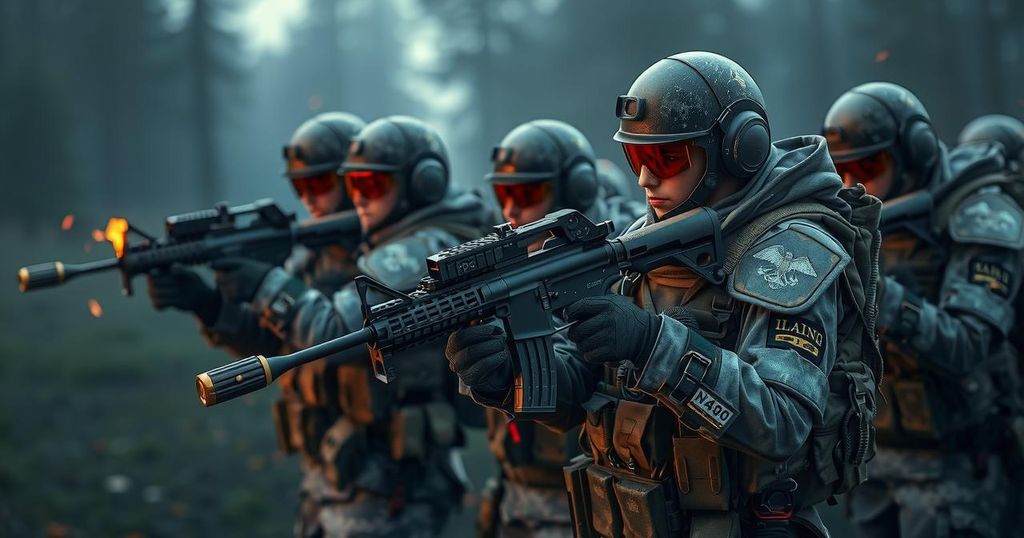The Wagner Group’s short-lived rebellion against Russian military leadership has not rendered it obsolete. Many mercenaries are choosing between following their leader into exile, enlisting in the Russian army, or staying put. Factors such as inadequate payment and competitive paramilitary opportunities suggest a possible transition or rebranding for Wagner, particularly in its African operations. Prigozhin’s future remains uncertain, yet experts predict the group’s adaptability and continued influence in various conflicts.
The Wagner Group’s recent failed insurrection against Russia’s military leadership has left its future uncertain. Within just over a day, the uprising dissipated after a reported agreement involving leader Yevgeny Prigozhin seeking exile in Belarus. Despite this setback, analysts suggest that the mercenary group is unlikely to disband, given its operations in Eastern Europe, Africa, and the Middle East. Following the insurrection, many Wagner fighters face decisions about their next steps, with a reported thousand individuals opting for Belarus. Others remain dispersed across various regions in Russia, indicating a split in allegiance.
Despite President Putin’s proposal to integrate Wagner members into the Russian Army or facilitate their retreat, independent assessments reveal a reluctance among many fighters to join the regular military forces. The allure of higher remuneration from private paramilitary groups plays a significant role in their decision-making. Analysts highlight concerns over consistent payment, noting that although the Russian state has heavily funded Wagner, these fighters are drawn to groups that offer superior compensation. Furthermore, as several paramilitary organizations have gained prominence in Russia, former Wagner personnel may form or join new entities, potentially continuing their operations elsewhere.
With Wagner’s substantial involvement in conflicts across Africa, it is speculated that the group may undergo a transition or rebranding to maintain its activities, particularly in nations where it has established a presence. Prigozhin’s personal future remains ambiguous, although he is believed to retain influence over Wagner operations even in exile. Observers recognize the fluidity of Wagner’s structure, suggesting that it could persist under new leadership or a redefined framework without him. Essentially, while the failed rebellion has posed challenges, Wagner’s trajectory suggests resilience and adaptation.
In conclusion, the Wagner Group’s failed rebellion catalyzes significant shifts in its operational paradigm, yet its dissolution seems unlikely. The group’s enduring presence in various regions, combined with the lucrative opportunities it can provide, suggests that it may adapt or restructure rather than disband outright. Prigozhin’s exit may foster a transformative phase for the organization, yet its fundamental essence and intentions could persist even in his absence, revealing the complexities of modern paramilitary dynamics.
The Wagner Group, a paramilitary organization founded by Yevgeny Prigozhin, has gained notoriety for its involvement in various global conflicts, particularly in regions such as Syria, Libya, and across parts of Africa. Following a rapid military ascent alongside Russia, the group orchestrated an armed rebellion against the Russian military command, which ultimately failed within a brief timeframe. This insurrection has raised questions concerning the group’s sustainability, potential reintegration or restructuring, and the implications for its operatives within and outside Russia. As geopolitical actors, their activities have garnered international scrutiny and debate amidst Russia’s ongoing military engagements.
In summary, despite the upheaval caused by the recent rebellion, the Wagner Group is poised for potential continuity rather than eradication. The dynamics within the paramilitary landscape indicate that fighters may choose alternative paths, whether that be aligning with new organizations, reintegrating into traditional military structures, or continuing operations abroad, particularly in Africa. Prigozhin’s leadership remains a pivotal factor, but the adaptability of the group suggests that its influence may persist irrespective of his personal fate.
Original Source: telegrafi.com






